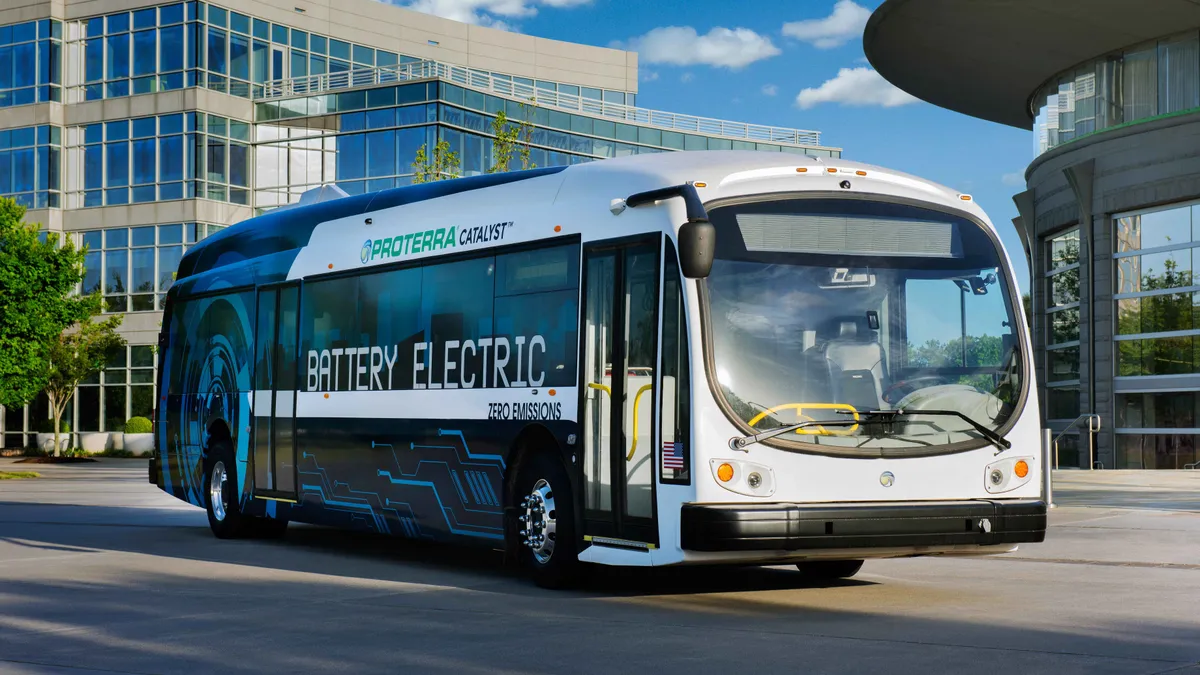Dive Brief:
- The Los Angeles County Metropolitan Transportation Authority announced plans to convert its entire 2,200 bus fleet to zero-emission buses by 2030.
- The LA Metro announced last Thursday it was awarding contracts for 95 electric buses and charging infrastructure for two of its bus service routes.
- The move to electrify part of Los Angeles' public transit system coincides with Southern California Edison's proposal to expand its electric transportation charging system within its service area.
Dive Insight:
A significant front in California's battle to reduce carbon emissions is the transportation sector. In 2016, Gov. Jerry Brown rolled out an action plan to put 1.5 million zero-emission vehicles on the road by 2025, as one way to meet a suite of greenhouse gas reduction programs under the California Air Resources Board.
LA Metro will hire a consultant to develop a plan to convert its remaining 168 bus routes to zero-emission buses.
Putting more electric vehicles on the road is key to solving several existential problems for utilities. California utilities are battling many familiar issues facing the sector nationwide: stagnant load growth, flat power sales and increasing penetration of renewable energy.
EV growth could help resolve those issues. In addition to growing power demand, electric vehicles can be used for demand response programs and avoid costly infrastructure upgrades. It's also another money-making opportunity. Utilities have proposed to ratebase charger systems, and can collect a rate of return on these projects.
SCE filed plans in January to expand its electric vehicle infrastructure system, planning to spend $553.8 million on a five-year charging buildout. The plan includes a pilot program in which SCE will install electric charging infrastructure behind-the-meter and provide a rebate toward installing these stations.
The buildout will also benefit LA Metro's goal to electrifiy its transportation sector, one of the biggest carbon emitting industries in the country. The U.S. Energy Information Administration reported in January that power sector emissions dropped behind the transportation sector for the first time in four decades.
However, the push by utilities to own charging infrastructure could set off a debate similar to ones over who owns behind-the-meter assets, and how they will participate in the EV market.








